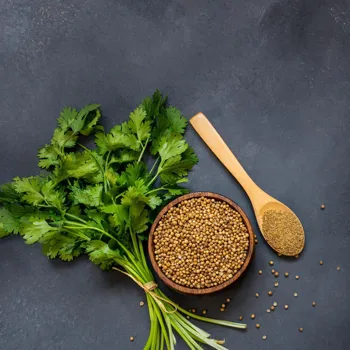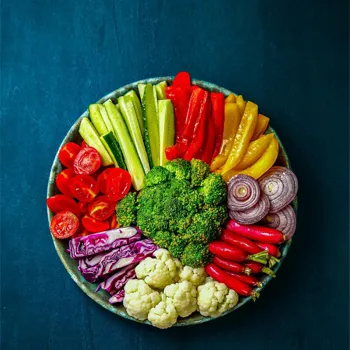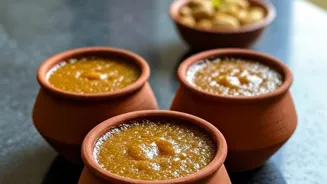Discover the ancient link between Ayurveda and Indian cuisine. Food as medicine awaits your exploration
For centuries, Indian cooking has been more than just about taste; it’s been a way of life intertwined
with the ancient wisdom of Ayurveda. Ayurveda, meaning "science of life," emphasizes the importance of balancing the mind, body, and spirit for overall well-being.
This holistic approach deeply influences how Indians choose, prepare, and consume food, making each meal a potential source of healing and nourishment. Forget simply filling your stomach; with Ayurveda, food becomes medicine.
The core of Ayurvedic cooking revolves around the concept of the three doshas
Vata, Pitta, and Kapha. These doshas are energies that govern our physical and mental health. Each individual has a unique combination of these doshas, and Ayurvedic principles suggest that we should eat according to our dominant dosha to maintain balance.
For instance, someone with a dominant Vata dosha, often characterized by dryness and coolness, might benefit from warm, grounding foods like cooked grains and root vegetables. Pitta individuals, prone to heat and inflammation, might opt for cooling foods like cucumbers and coconut water.
Kapha types, who tend to be heavy and sluggish, might prefer light, easily digestible foods such as lentils and spices. Understanding your individual dosha and tailoring your diet accordingly is key to Ayurvedic eating.
Spices in Ayurvedic cooking offer medicinal benefits beyond flavor
Spices are the cornerstone of Ayurvedic cooking, playing a far more significant role than merely adding flavor. These potent ingredients are chosen for their specific medicinal properties and their ability to balance the doshas.

Turmeric, with its anti-inflammatory and antioxidant properties, is a staple in many Indian dishes. Ginger, known for its warming and digestive qualities, is often used in teas and curries. Cumin aids digestion and helps to detoxify the body.
Coriander helps to cool the body and reduce inflammation. Each spice is thoughtfully incorporated into recipes, transforming ordinary dishes into therapeutic meals.
A simple lentil soup, with the right blend of spices, can become a powerful remedy for a common cold, showcasing the true potential of Ayurvedic cooking.
Ayurvedic cooking: fresh, seasonal, local ingredients promote health, sustainability
The emphasis on fresh, seasonal, and locally sourced ingredients is another hallmark of Ayurvedic cooking. Ayurveda believes that food is most nutritious and beneficial when it is consumed in its natural state, at the peak of its season, and grown in close proximity to where we live.
This practice aligns perfectly with the growing global trend of sustainable eating and supports local farmers and communities.
Choosing seasonal fruits and vegetables ensures that we are consuming food that is naturally rich in vitamins and minerals that are most relevant to our body's needs at that particular time of year.
Eating locally sourced food also reduces the carbon footprint associated with long-distance transportation, making it an environmentally conscious choice.
Ayurveda stresses mindful cooking and eating habits for health
Beyond the ingredients, the way food is prepared also plays a crucial role in Ayurveda. Cooking methods like steaming, boiling, and sautéing are preferred over deep-frying, as they preserve the nutritional value of the food and make it easier to digest.

Food is often cooked with love and attention, and mindful eating is encouraged. Ayurveda emphasizes the importance of creating a peaceful and harmonious environment during meal times, free from distractions.
Eating slowly and savoring each bite allows the body to properly digest the food and absorb its nutrients. Avoiding overeating and focusing on eating only when hungry are also essential principles of mindful Ayurvedic eating.
Ayurveda integrated in Indian cooking enhances well-being worldwide
The integration of Ayurveda into Indian cooking is a testament to the country’s rich cultural heritage and its deep understanding of the connection between food and well-being. It’s a reminder that food is not just fuel for the body but also a source of nourishment for the mind and spirit.
As more people around the world seek holistic approaches to health and wellness, the principles of Ayurvedic cooking offer a valuable framework for creating a more balanced and fulfilling relationship with food.
So, next time you enjoy a simple dal or a flavorful vegetable curry, remember that you are experiencing a tradition that has been nourishing bodies and souls for centuries.
AI Generated Content. Glance/InMobi shall have no liability for the content












